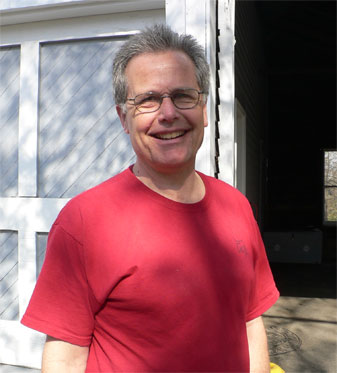Norbert Hirschhorn is a poet and medical doctor living in England. His poem “Lifeline in Thirty-Eight Stations” won first prize in the 2010 Poetry Kit Poetry Competition. We reprinted it this month in the Winning Writers newsletter and I enjoyed it so much that I wanted to share it here on the blog, with his permission. I grew up on New York’s Lower East Side. a historic neighborhood of Jewish immigrants, so this poem brought back a lot of memories of Manhattan’s gritty, vibrant, multiethnic life.
Lifeline in Thirty-Eight Stations
(A Metro-poem, after Jacques Jouet, Oulipo)
242nd Street 12:40 pm. Open-air northern terminal of Mannahatta, Lenni-Lenape word, meaning “Rocky Place”. The #1 Broadway, 7th Avenue local, the good old IRT, from Van Cortland Park and the Bronx Zoo (where once a caged lion turned his back and arced his pungent piss on me) down to South Ferry.
238th Street Train yard, resting cars, high-rise apartments nestling on Algonquin burial mounds.
231st Street Young men in grunge eat hamburgers, french fries from paper bags. I salivate.
225th Street Riverdale, and high school sweetie Marion Kane kissing with her mouth closed. Razor-wire loops on all rooftops.
215th Street Spuyten Duyvil, Dutch: “Spitting Devil”, traversing the coupling of waters, Harlem to Hudson.
207th Street White people, black people, brown, a Tibetan monk; ten-second stop but no one gets on.
200th Street Dyckman. Fort Tryon Park on Manhattan’s bluffs where oilman John D. assembled a medieval cloister scavenged from France.
191st Street Underground! The station a tomb, we sail through, a cortege, a ghost-ship; Charon wears a hard hat.
181st Street Washington Heights. Rats, homeless men bunking in dark recesses between stations. Walks across George Washington Bridge, one foot in New Jersey, one foot in New York, on Shabbos.
168th Street Memories! I went to medical school here, Columbia. I once jumped into the train track pit and almost couldn’t climb back up. Mother almost died here. Audubon Ballroom, Malcolm X assassinated.
157th Street Memories! I grew up here. I knew every alley, backyard, basement, rooftop; every hand-hold in the rocks; every crazy pavement; boxball, curbball, stickball, “spaldeens” down the sewer.
145th Street Like an airlock: not quite home, not quite not home.
137th Street Music & Art High School, City College. My sister went to both, her memories—another universe.
125th Street Daylight. Harlem. Harlem River to the left, Hudson to the right, New Jersey Palisades, visions of the old amusement park, neon lights quickening the river.
I never got off at 125th Street.
116th Street Underneath again. Columbia, my college, the happiest unhappy time of my life.
110th Street Cathedral of St. John the Divine, I made love in its shadow. I realize something:
no one drop-dead lovely ever rides the subway.
103rd Street What? I’ve dozed off, lost track. Where did 103rd Street go?
96th Street People eat, drink, read, think, sleep, emerge from cocoons only to get off.
86th Street I’m exhausted. New York is exhausting. I can’t write so fast, the door closes like a guillotine, “No! Wait!”
79th Street Upper West Side where fine Jews live. Zabar’s, Fairway Market, first cold-pressed extra virgin olive oil, six dollars a quart.
72nd Street Riverside Drive starts here, the old West Side Highway, the old Viennese pastry shop where every Saturday my father met other survivors.
66th Street A #2 express train glides past, or we’re moving backwards. I look into its windows, people in an alternate universe, perhaps I’ll see myself.
59th Street Central Park, The Plaza (“Eloise”). Across from me, New York Post front page: “Millionaire X-dresser Chopped Up His Boyfriend’s Body. Bobby, Where’s The Head?”
50th Street The pretty Latina looks at me. Does she know what I’m doing? I look at her. Do I know what I’m doing?
42nd Street Cliché station, anus mundi, “Change here for the Shuttle, the A, C, D, Q, W, and R. Stand clear of the closing doors please. STAND CLEAR.” Who remembers an all-night hot dogs and knish stand? Blue balls at 3am.
34th Street Penn Station! (“Lead us not into…”) Careless: the old one torn down while Caracalla remains. Careless: I rid myself of a wife.
28th Street Mexican guitar trio, “buskeros”, hop on, sing a song, take money, run. Down here not sunny.
23rd Street Nothing clever to say. Good. Shuddupaminute.
18th Street Garment district where one summer I shlepped sample bags for a fat-ass shmatta salesman.
14th Street Walk east to Union Square, my first pair of long pants at S. Klein-on-the-Square, and men megaphoned Communism.
Christopher Street, Sheridan Square They called the school “NY Jew”. Greenwich Village, I heard Ted Joans at Village Vanguard recite Beat and Africa. Ted Joans, the poet, is dead. Amato free opera, my first margaritas, Ted Joans is dead. Fifty years later I read my own poems at the Cornelia Street Café.
Houston Street Call it HOW-ston, land of Katz’s Delicatessen: “Send a salami to your boy in the AH-me”; Yonah Shimmel’s one hundred year old knisheria. Every Sunday: pastrami on rye washed down by Dr. Brown’s Cel-Ray Tonic. Tea in a glass (“Nu, vat den, in a pail?”) My father’s day off.
Canal Street SOHO = SOuth of HOw-ston, once paddled by the Lenni-Lenape.
Franklin Street Old warehouse district, now condominiums, John Kennedy Jr., R.I.P. TRIBECA, TRI-angle BE-low CA-nal.
Chambers Street One stop from the World Trade Center at sealed up Cortland Street station.
Cortland Street
Rector Street Still thinking about this inconstant world; but you know, we’re eager for change, something, like Cavafy’s Barbarians: “They were, those people, a kind of solution.”
South Ferry 1:34 pm. Ferry to the Statue of Liberty, Emma Lazarus, “Give me your tired, your poor…” Ferry to Staten Island, once the cheapest date in New York, nickel each way. I landed here in December 1944, Jewish, refugee, age six. Only the first five cars open doors on the foreshortened platform and I’m in car seven, sealed in. But it’s okay, it’s okay, just another terminal.
